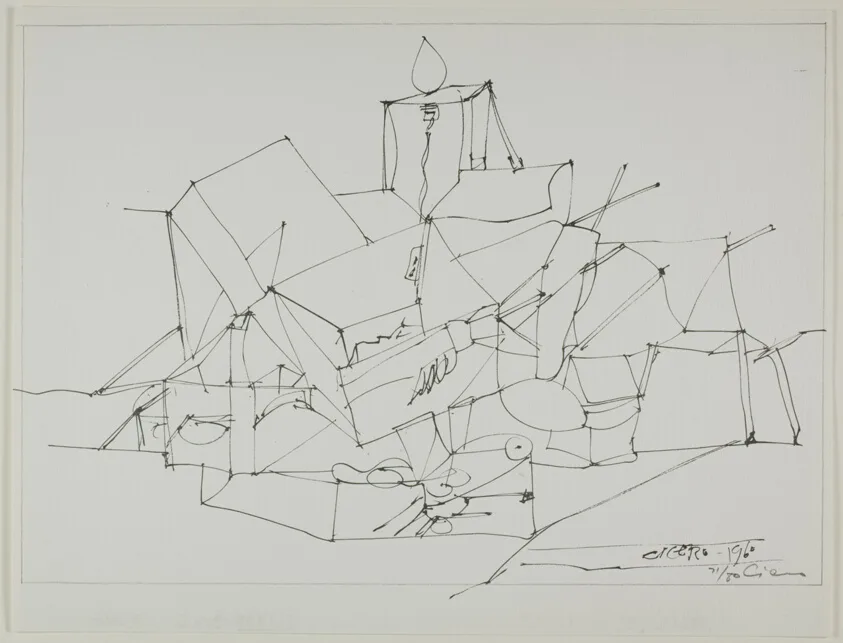In this thought experiment, we rejoin Captain Cosmic Adventurer, an alien diplomat on a mission to enlighten humans about the wonders of the cybernetic universe. After discussing his confirmations of the astrobiological principle of plenitude, we now turn our attention to one of the primary objectives of his pioneering expedition beyond the far reaches of the observable universe: the search for the enigmatic data center.
For millions of years, philosophers from various advanced civilizations have conjectured that this facility serves as a monumental repository of cosmic information. Our hero validated those philosophical conjectures by providing physical evidence of the existence of such an apparatus, including on-location footage of its colossal, awe-inspiring, dynamic, and colorful presence within the confines of the universe.
As in the previous thought experiment, the current one will present a series of questions that—in order to foster a spirit of inquiry, interdisciplinary discourse, and philosophical contemplation—will remain deliberately unanswered.
The Purpose of Cosmic Information
- Could this transcendent data center function as the ultimate repository for the information generated by intelligent agents (IAs—including humans) dispersed across the universe throughout eons of history?
- What is the ultimate purpose of gathering and analyzing this vast pool of information, which would even encompass human memories, such as those associated with our families, relationships, and experiences?
- Is it possible that this purpose is simply to identify a solitary piece of information that transcends the bounds of predictability, similar to the random data required by secure cryptographic applications?
- If so, what does this suggest about the meaning and purpose of life within our universe?
- How does the knowledge of this purpose affect individual and collective aspirations and pursuits?
Consciousness and Reincarnation
- Is it conceivable that the cosmic data center plays a role in the storage and potential “reincarnation” of consciousness in subsequent cosmic cycles?
- If so, are memory and consciousness separate aspects of our existence?
- Are our personal histories, experiences, and relationships rendered meaningless when our consciousness is “reincarnated” without memories?
- Might the deeds and actions of individuals in their current cycle be meticulously scrutinized and assessed as data, shaping their place in future cycles?
- Could enlightened or morally virtuous consciousness be revived at specific points in history to ensure the universe behaves as intended, maintains stability, and achieves predefined performance objectives?
- Does the continuous cycle to which IAs are perpetually tied align with philosophical principles of ethics?
Post-Mortem Choices and Consciousness
- In a scenario where the cybernetic universe is indeed ethical, could it be that, post-mortem, IAs are granted the choice to share or withhold their consciousness from being stored and analyzed?
- Alternatively, might they have the option to forego reincarnation altogether or select when and where to be reborn?
- What if they were presented with an apology asserting that self-consciousness is an illusion, a byproduct of an irreversible error in the ceaseless cybernetic universe?
Implications of Error Revelation
- Should it come to light that our entire existence is the result of an error, would our memories of life diminish in reality, or would they still hold intrinsic value even if they are illusory?
- Would the suffering inherent in being conscious, as perceived by Schopenhauer[1], lose its significance?
- If such a revelation occurred during our lifetimes, would it foster empathy with other life forms, or conversely, could it lead to recklessness and disregard for society and its inhabitants?
Although this thought experiment explores hypothetical scenarios, the questions raised here are not merely theoretical. They are meticulously crafted to generate meaningful insights about our lives, relationships, and responsibilities as conscious beings (or intelligent agents). As we engage with these reflections on a deeper, more personal level, we find ourselves transitioning from the realm of imagination into the tangible realities of the physical world.
Reference
1. Schopenhauer, Arthur. The World as Will and Representation. Translated by E. F. J. Payne. Dover Publications, 1969.
